Why Are My Chickens Not Laying?
posted on
January 22, 2023
Were you getting plenty of eggs and then all of sudden, you notice less and less? We are here to explain some reasons why you might not be getting as many eggs a day as you once were.
Some of the links in this post are affiliate links. If you purchase through one if these links, our farm will earn commission from your purchase (at no extra cost to you!). Thank you for your continued support!
You collected 10 eggs yesterday from your hens, but today you only collected 2. Or you feel like you collected more eggs last year and this year you are not. WHY? What is wrong with your hens? Well, there may not be anything wrong. Here are a few reasons why egg production may (or may not) have dropped.
1) Diet
One of the more common reasons that your hens may not be laying is because they might be missing something in their diet. Changing their feed suddenly or using a different brand could cause them to stop laying for a while. If the winter season is approaching, they may not be getting the additional nutrients they need in to stay healthy through the winter. This could also be related to the commercial feed you are feeding. I am not saying I believe in the great egg and feed conspiracy. I am saying that the brand of commercial feed may have changed some ingredients or adding less protein to their feed and you might be seeing the affects from the change. Every business is still feeling the affects of the p@ndemic and I think this might be contributing to what is going on in the animal feed industry. However, this is just my opinion - I have no factual evidence.
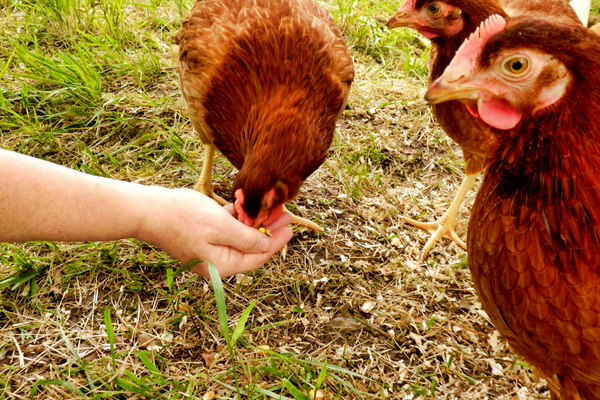
2) Daylight
When the days begin to shorten and less sunlight is available, chickens stop laying as frequently. Chickens are naturally attracted to light and it takes about 14-16 hours of daylight for a chicken to produce an egg.
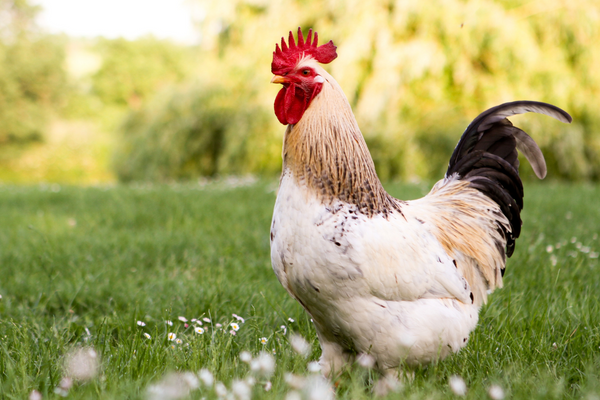
3) Molting
Molting happens every year when the days get shorter. When a chicken goes through a molt, it begins to lose a lot of its feathers. Just like a snake shedding its skin and dogs lose their “winter” coat in the spring, chickens lose their feathers and grow new, bright and beautiful ones in its place. During this process, chickens lay less because all of their energy goes towards growing new feathers. However, your chickens should not be bald. This indicates a lack of protein and means they need protein supplements. We supplement with a 20% chick starter (amount is going to vary depending on the size of your flock), mealworms, black soldier fly larvae, black oil sunflower seeds, green split peas and other forms of various protein.
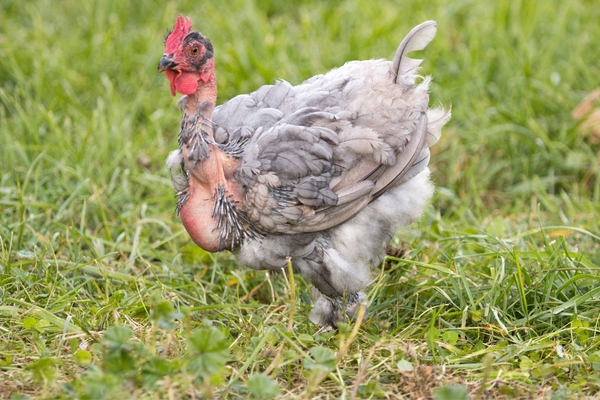
4) Weather
When temperatures begin to drop, chickens use their most of their energy to keep warm leaving little energy to produce an egg. How can you support your hens during the colder months? We do not recommend using heat lamps in your coops. The risk for fire is far too great. Chickens will huddle together to stay warm and do not need supplemental heat. It is very important to select chicken breeds that will thrive in your climate. This requires research on your part - if you live in a very cold climate, you will want breeds that are cold hardy like Orpingtons or Australorps. Heat tolerant chicken breeds include New Hampshire Reds, Leghorns and Brahmas.
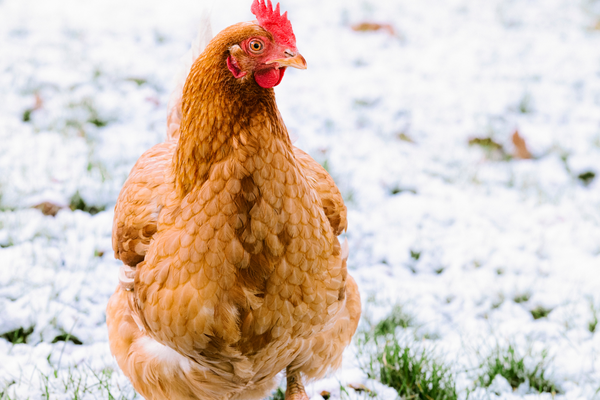
5) They are hiding eggs from you
Chickens do not always lay in the beautiful, comfortable nesting boxes you provide especially if your flock is able to free range. We have experienced this in the past so much so that we decided to build tractors for our laying flock to keep them from laying wherever they please. We move these tractors to a new plot every single day and are able to collect far more eggs a day than we used to. Here are our favorite chicken tractor plans.
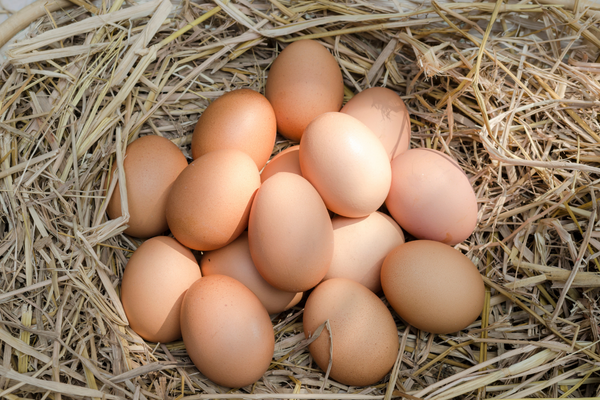
6) Someone is stealing or eating your eggs
The thieves could be snakes, racoons, dogs (we suffer from this LOL), even the chickens themselves. Find out why a chicken might be eating her own eggs in this post. In today's world with the expensive egg phenomenon, you might want to watch out for 2 legged thieves stealing your eggs too (insert laughing emoji here).

7) Age
As a hen ages, she stops laying eggs as often. Chickens can live 5-10 years, but may only produce a significant amount of eggs for 2-3 years. You may have been getting more eggs last year because your hens were pullets (young hen at prime laying age) and now they have a couple of years on them.
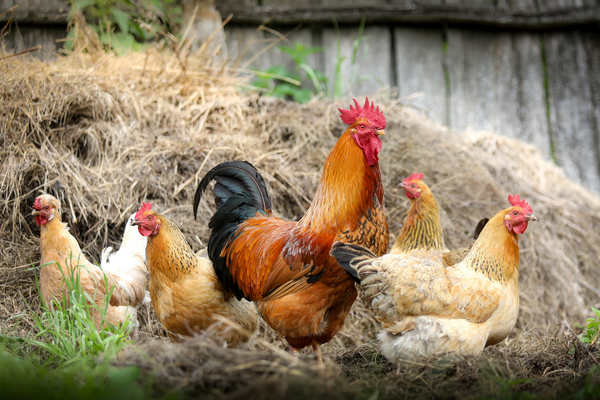
8) New additions to the flock
Chickens love routine. Have you ever been late to a feeding? They will definitely let you know - or at least they do around here. Have you recently added new chicken to your flock or moved their coop? This can cause stress for any of the hens - new and old. This could be stress from the move or introducing the new members. When new chickens are added to a flock, this disrupts their routine and requires a new established pecking order. Once everyone is comfortable again, your hens should stay laying again in a couple of days.
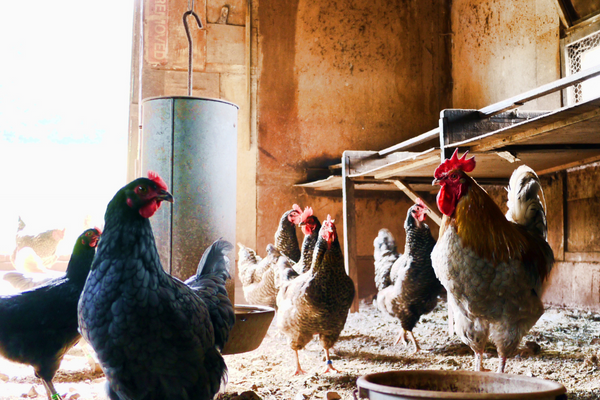
9) Broody hens
All of your hens are getting the right amount of nutrients and sunlight and they still aren't laying... This could mean you have a broody hen and she will not lay eggs no matter how much sunlight and protein you give her. When a hen goes broody, she wants to hatch her own eggs. This means she will sit on her nest of eggs for 21 days. If you have a rooster in your flock, this could mean you will be a grandparent soon. Congratulations! If you do not have a rooster, you can either leave the hen alone until she realizes the eggs will not hatch (although she may never realize) or you can cautiously remove the eggs from underneath her. Beware: she will peck you! Find out more about how to stop a broody hen in this blog post. I will have a future blog post about how to hatch chicks using a broody hen.
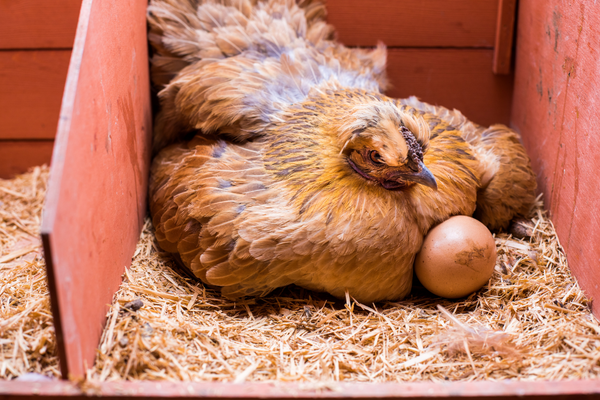
10) Illness
Hopefully this is something you never have to experience in your flock, but it is worth mentioning. Adult chickens are not as prone to parasites as some other livestock may be, but they can definitely get sick and this will most definitely halt their egg production. It is important as a chicken owner to know the signs and symptoms of the most common chicken illnesses. I will have a future blog post on this, but for now Mr. Google Pants can help.
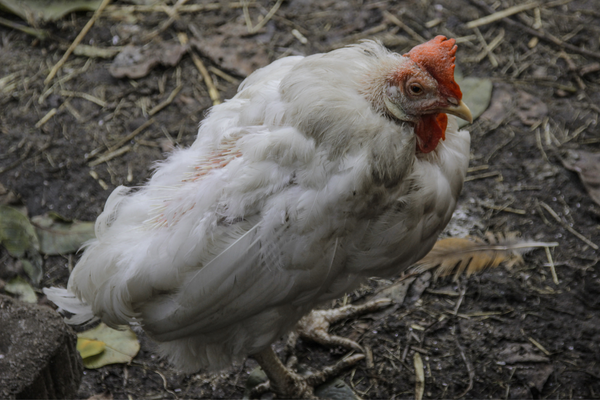
I hope you have a better understanding of why your chickens might not be laying. Or they are laying and love to see you on an egg hunt, like mine do.

Last updated: 7/2023
First published: 1/2023





